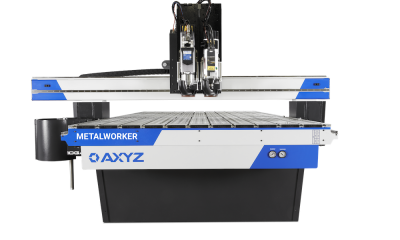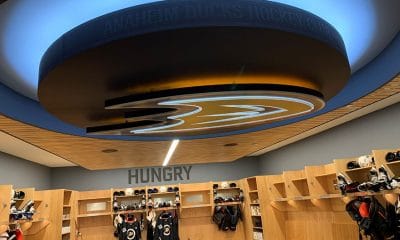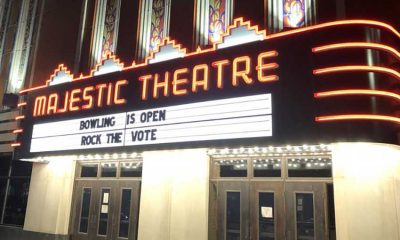If you’re a crane operator, trainer, or tester, November 2014 will be a stressful month. By November 10th, U.S. crane operators must be certified, per OSHA. J.R. Williams, a commissioner for the National Commission for the Certification of Crane Operators (NCCCO), warns that sign company employees who don’t operate cranes for the majority of their job “are probably going to need some pretty intensive training.”
Even experienced operators can fail the exams, thanks to the twin intimidations of clipboard-laden inspectors and written tests. OSHA exclusions and new winch-rerating kits will allow some companies to avoid certification, but others should allow ample time for training and testing, Williams said.
George Leach, who co-owns Kansas Construction Safety Service LLC, estimates 80% of his trainees pass the test’s written portion, and 60% pass the practical exam. “For these guys to receive NCCCO certification, it shows that they are the best of the best,” he said. Williams, who also runs the East Texas Crane Academy, told me his students pass the written and practical exams at rates around 90% and 75-80%, respectively.
Industry-wide, Williams said, pass rates are lower. He cited poor instruction (“There just aren’t that many of us out there who are doing it [teaching] effectively”) and operators who take the test without preparation, a situation Leach termed “operator arrogance.” Leach explained that after years on the job, some crane operators believe they have little to learn.
“They can take the test without any training, but the pass rate’s dismal,” Williams said, pointing to language barriers, learning disabilities and inattentiveness as additional testing barriers.
As the deadline nears, more agencies seek OSHA approval to certify crane operators. An OSHA representative confirmed at least four such organizations: the NCCCO, Crane Institute of America, Intl. Union of Operating Engineers, and the National Center for Construction Education and Research.
Advertisement
John Nypl, who owns the California Crane School (CCS), recently lost a lawsuit against the NCCCO in which he alleged business interference and violations of California’s antitrust and unfair competition laws. In a recent interview, he stated his students “have the highest pass rates in the country,” noting this results in less (indirect) testing revenue for the NCCCO.
It’s hardly the first legal action between Nypl and the NCCCO. A 2005 intellectual-property lawsuit yielded a settlement and a permanent injunction against Nypl. Joseph Alioto, Nypl’s lawyer, said his client purchased copies of NCCCO exams: “It was a stupid mistake by him to do it, regardless of his reason. He didn’t need the exams. And the evidence is, he didn’t use them.”
As part of the settlement, Nypl returned the exams. NCCCO Executive Director Graham Brent said the NCCCO gave CCS teaching materials obtained from a whistleblower to its attorneys for safekeeping. A subsequent suit found that Nypl violated the injunction; it is currently under appeal.
To Nypl, one thing stands out: “The more tests you take, the more money they make.” Although the NCCCO is a nonprofit, it splits testing fees with the Intl. Assessment Institute, a for-profit testing provider. Originally funded by manufacturer, contractor and industry-association contributions, the NCCCO is now fully funded by candidate test revenue, according to Brent.
The question of “pass rates” lingers. Nypl claims his pass rate is calculated based on the number of attempts and number of passes; if you take the test 10 times, but pass once, that’s 10%. In an email, Brent described a seemingly different calculation: “In discussions about pass rates, NCCCO does not differentiate between candidates who pass at the first attempt and those who pass after two or more attempts.”
The NCCCO is governed by a nine-member board, with 48 commissioners (including 18 alternates) who represent nine sectors of the crane industry, including crane schools. The commissioners meet twice a year to establish policy and operational procedures, according to Williams. Still, “it’s not just a group of training schools,” he said. Brent told me board members, who determine commission actions, aren’t affiliated with crane schools. Even the commission, he said, only has a few crane-school operators.
Advertisement
NCCCO supporters are vocal and powerful. Darrel Wilkerson, Jr., the vice president of Wilkie Mfg., said the NCCCO “really holds its credentials at a high standard.” Leach will only work with the NCCCO, which he calls “a very professionally run organization.” Still, Nypl’s legal team alleges judicial errors, and is planning to appeal the most recent verdict against Nypl and the CCS.
The two sides confirm the need for more skilled crane teachers. Testing pass rates – whatever they are – could improve. So, if you’re debating the expense of training and testing, don’t skimp and don’t delay. Find a teacher with a high pass rate on the written and practical exams. Retesting fees, I hear, can be hefty.

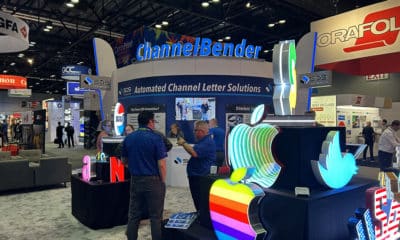
 Photo Gallery2 weeks ago
Photo Gallery2 weeks ago
 Paula Fargo2 weeks ago
Paula Fargo2 weeks ago
 Real Deal1 week ago
Real Deal1 week ago
 Photo Gallery2 weeks ago
Photo Gallery2 weeks ago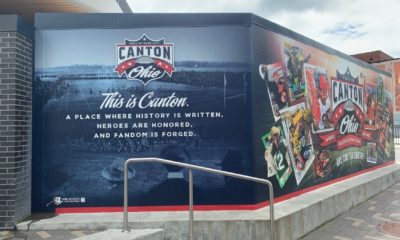
 Projects1 week ago
Projects1 week ago
 Business Management1 week ago
Business Management1 week ago
 News1 day ago
News1 day ago
 News1 week ago
News1 week ago